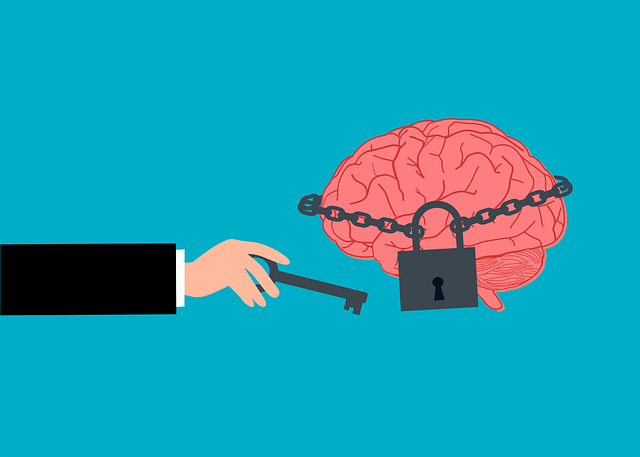Burnout among healthcare providers caring for adolescent teens undergoing bariatric evaluations is a pressing issue due to heavy workloads, long hours, and complex patient needs. To mitigate this, proactive interventions focusing on both individual self-care routines (like mental wellness journaling) and system-level resource allocation are crucial. Key strategies include therapeutic interventions for adolescents, stress management techniques in bariatric evaluations, and peer support networks. By prioritizing provider well-being through these methods, healthcare institutions can foster healthier work environments and maintain high standards of patient care.
“Healthcare provider burnout is a growing concern, impacting not only individual well-being but also patient care. This comprehensive article delves into strategies to prevent and mitigate burnout among healthcare workers, focusing on adolescent teens and bariatric patients. We explore the causes and effects of burnout, providing guidance on identifying risk factors through bariatric evaluations and assessing emotional exhaustion in teens. Additionally, evidence-based interventions and fostering resilience are discussed as long-term solutions for sustainable healthcare delivery.”
- Understanding Burnout Among Healthcare Providers: Causes and Impact
- Identifying Red Flags: Assessing Burnout in Adolescent Teens and Bariatric Patients
- Evidence-Based Strategies for Prevention and Intervention
- Fostering Resiliency and Well-being: Long-term Solutions for Sustainable Care
Understanding Burnout Among Healthcare Providers: Causes and Impact

Burnout among healthcare providers is a growing concern, impacting not only individual well-being but also patient care and the overall healthcare system. It manifests as a state of emotional exhaustion, depersonalization, and reduced personal accomplishment, often driven by high workload, long working hours, and complex patient demands. In today’s medical landscape, where the demand for services is increasing while resources are stretched thin, healthcare providers, especially those supporting vulnerable populations like adolescent teens undergoing bariatric evaluations, are at heightened risk.
The causes of burnout are multifaceted. Lack of empathy-building strategies and effective trauma support services can contribute to emotional fatigue. Without adequate self-care routine development for better mental health, professionals in this field may struggle to manage the constant exposure to challenging situations, leading to a deterioration of their well-being. These factors underscore the need for proactive interventions aimed at mitigating burnout risk and fostering a healthier work environment.
Identifying Red Flags: Assessing Burnout in Adolescent Teens and Bariatric Patients

Burnout among adolescent teens and bariatric patients is a growing concern due to the high-stress nature of their healthcare journeys. Identifying red flags early on is vital for prevention. Healthcare providers should integrate regular mental wellness journaling exercises into patient care, encouraging adolescents and bariatric individuals to express their feelings and thoughts in a safe, non-judgmental space. This practice can help track emotional shifts and provide guidance for communication strategies tailored to each patient’s needs.
During bariatric evaluations, assessing burnout should be an integral part of the process. Professionals can look out for signs such as chronic fatigue, decreased motivation, cynicism towards work, and reduced professional efficacy. These indicators may signal underlying emotional struggles that require attention. By incorporating emotional regulation techniques into therapy for adolescent teens and bariatric patients, healthcare providers can empower them to cope with stress more effectively, ultimately preventing burnout.
Evidence-Based Strategies for Prevention and Intervention

Preventing healthcare provider burnout is a multifaceted approach that leverages evidence-based strategies for both prevention and intervention. Among these, therapy for adolescent teens plays a crucial role in addressing underlying mental health issues that can contribute to burnout. Bariatric evaluations are another key component, focusing on assessing and managing the physical health of healthcare workers, which is essential as obesity rates rise among professionals in this sector.
Effective interventions include the development of coping skills—teachings that enable providers to better navigate stress and challenging situations. Stress management techniques, such as mindfulness practices and time management strategies, are also integral parts of these prevention plans. By integrating these evidence-based approaches, healthcare organizations can foster a culture that prioritizes mental wellness, thereby reducing burnout rates among their staff.
Fostering Resiliency and Well-being: Long-term Solutions for Sustainable Care

In the realm of healthcare, fostering resilience among providers is a proactive approach to burnout prevention. This involves implementing strategies that promote mental wellness and anxiety relief, especially for high-risk groups like adolescent teens undergoing bariatric evaluations. By prioritizing long-term solutions, institutions can create an environment where professionals feel supported and equipped to handle the demands of their roles. Incorporating therapeutic interventions, stress management techniques, and peer support networks is essential in nurturing a culture that values and prioritizes provider well-being.
A key aspect of fostering resilience is recognizing the importance of self-care. Healthcare providers must be encouraged to take regular breaks, engage in activities outside of work, and access available therapy for adolescent teens as well as other mental health services. These measures not only enhance individual well-being but also contribute to sustainable care practices, ensuring that healthcare professionals remain dedicated and effective over time. In light of these considerations, implementing robust burnout prevention strategies is vital for maintaining a high standard of patient care.
In conclusion, addressing healthcare provider burnout is paramount for maintaining patient care quality and ensuring a sustainable workforce. By understanding the multifaceted causes of burnout, identifying at-risk individuals through red flag assessments like those for bariatric patients and adolescent teens, implementing evidence-based prevention strategies, and fostering resilience, we can create a more supportive work environment. These holistic approaches not only mitigate burnout but also enhance overall well-being, enabling healthcare providers to continue offering compassionate and effective care.














